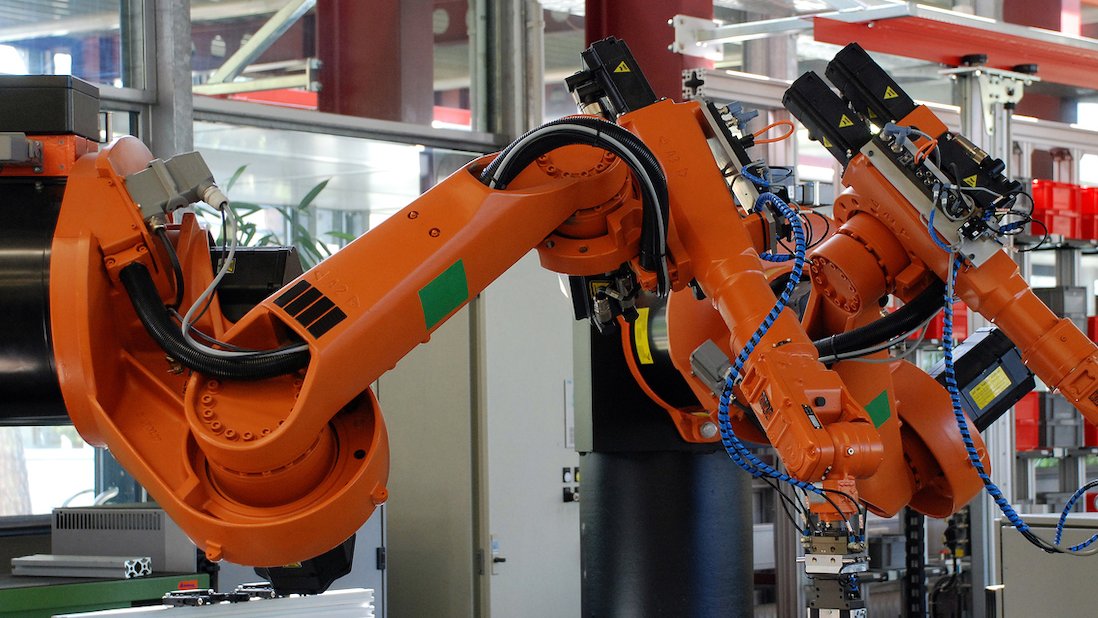Mechanical engineering, mechanics
Mechanical engineering, with its sub-discipline of mechanics, is one of the largest industrial sectors in Germany and a key driver of technical development. It is therefore one of the most important engineering disciplines.

Overview of the academic discipline
Mechanical engineers develop machines and systems that are used in industrial production: They design milling and grinding machines, conveyor systems, cranes and industrial robots. Motors, pumps and blowers developed by them can be found in many everyday products, such as washing machines and cars. This makes mechanical engineering one of the leading branches of industry in Germany. Similarly, mechanical engineering is one of the most represented engineering disciplines at universities.
Students can choose from numerous specialisation options that cover the entire breadth of mechanical engineering, such as plant engineering, production engineering, energy technology, theoretical mechanical engineering, lightweight construction or automotive engineering. Depending on the university, some of the specialisation options are also offered as independent degree programmes (such as ‘Sustainable Product Development’ or ‘Sustainable Engineering’).
Which topics are included in the curriculum?
In the Bachelor's degree programme, modules teach basic scientific, technical and method-oriented skills. Typical subjects are mathematics, technical mechanics, materials science and testing, design theory, computer-aided design, measurement technology, thermodynamics, production, processing and process engineering, electricity, technical computer science, experimental physics, work and company organisation.
This is followed by an extension of the basics and (depending on the programme) the choice of a specialisation such as design engineering, production/manufacturing engineering, product development, energy and process engineering, heat, drive and conveyor technology, machine tools, aircraft engines and fluid flow machines, earthmoving and agricultural machinery, transport and traffic engineering, aerospace engineering or plastics engineering.
There are also specialised modules such as energy technology, production technology, machine elements, fluid mechanics, numerical calculation methods, control engineering, simulation technology, industrial automation, lighting technology and quality management. Supplementary courses are available, for example, in project management, artificial intelligence or economic and ecological framework conditions.
As a rule, students complete an industrial placement.
What are the requirements?
Applicants often have to provide evidence of a relevant pre-study internship, and a numerus clausus is only applied to a few courses at highly sought-after universities. Important school subjects are mathematics, physics, computer science and English.
What study programmes are there to choose from?
Mechanical engineering courses can be found at both universities and universities of applied sciences, with university courses accounting for around a third of the total range on offer.
Depending on the university and course, students can specialize in energy and environmental technology, automotive engineering or automation technology during their undergraduate studies.
What job opportunities are there after graduation?
There are employment opportunities for mechanical engineers wherever machines and systems are developed, built, operated and repaired. Depending on the focus of their studies, they may work in development, project planning, design and testing, production planning and monitoring, production and work preparation, quality assurance, maintenance, service, application consulting and sales.
There are also employment opportunities in engineering offices, at trade and professional associations, in research and teaching, at technical inspection associations and in the public sector. Self-employment in planning and design or as an expert is also possible.
